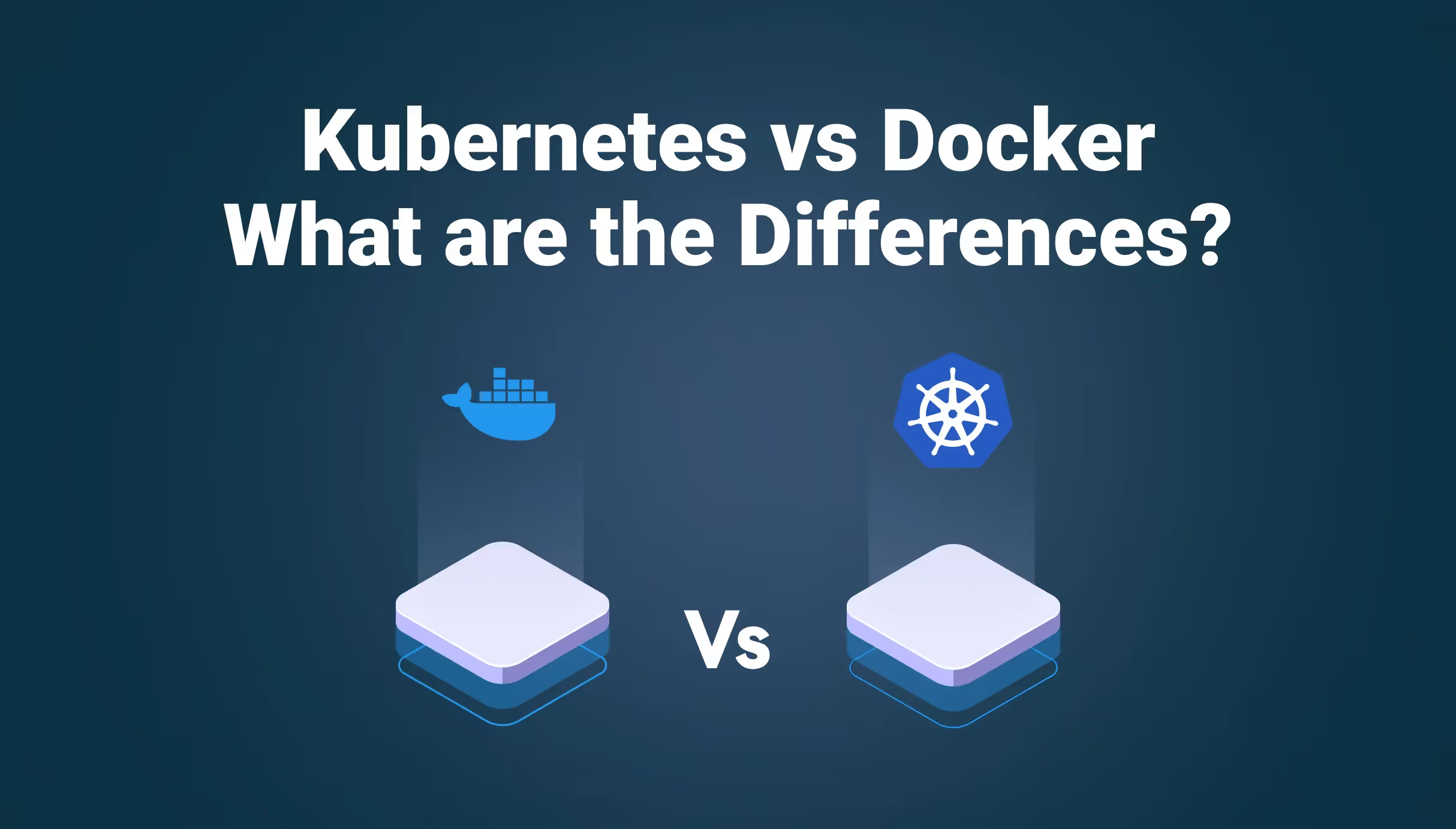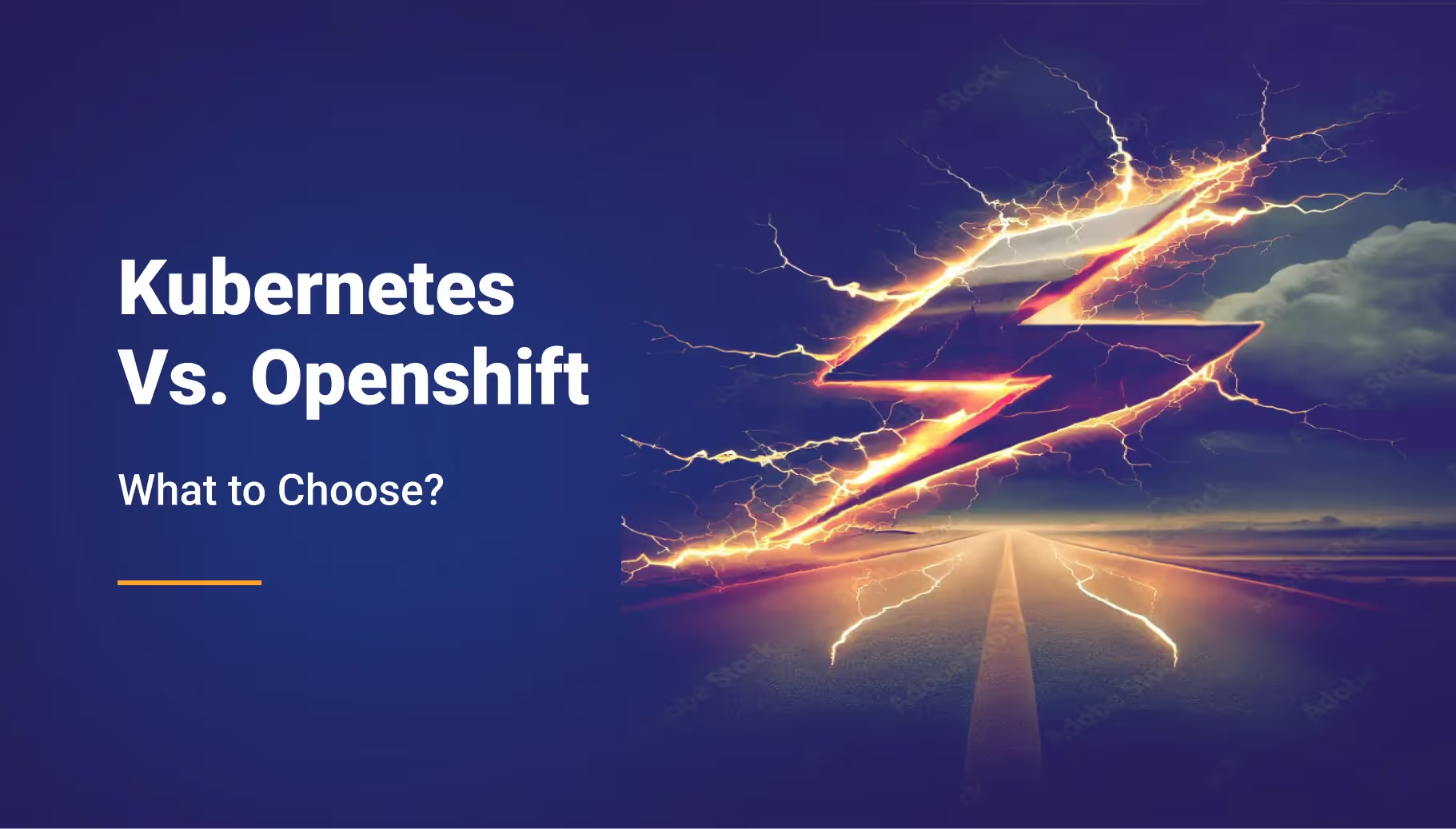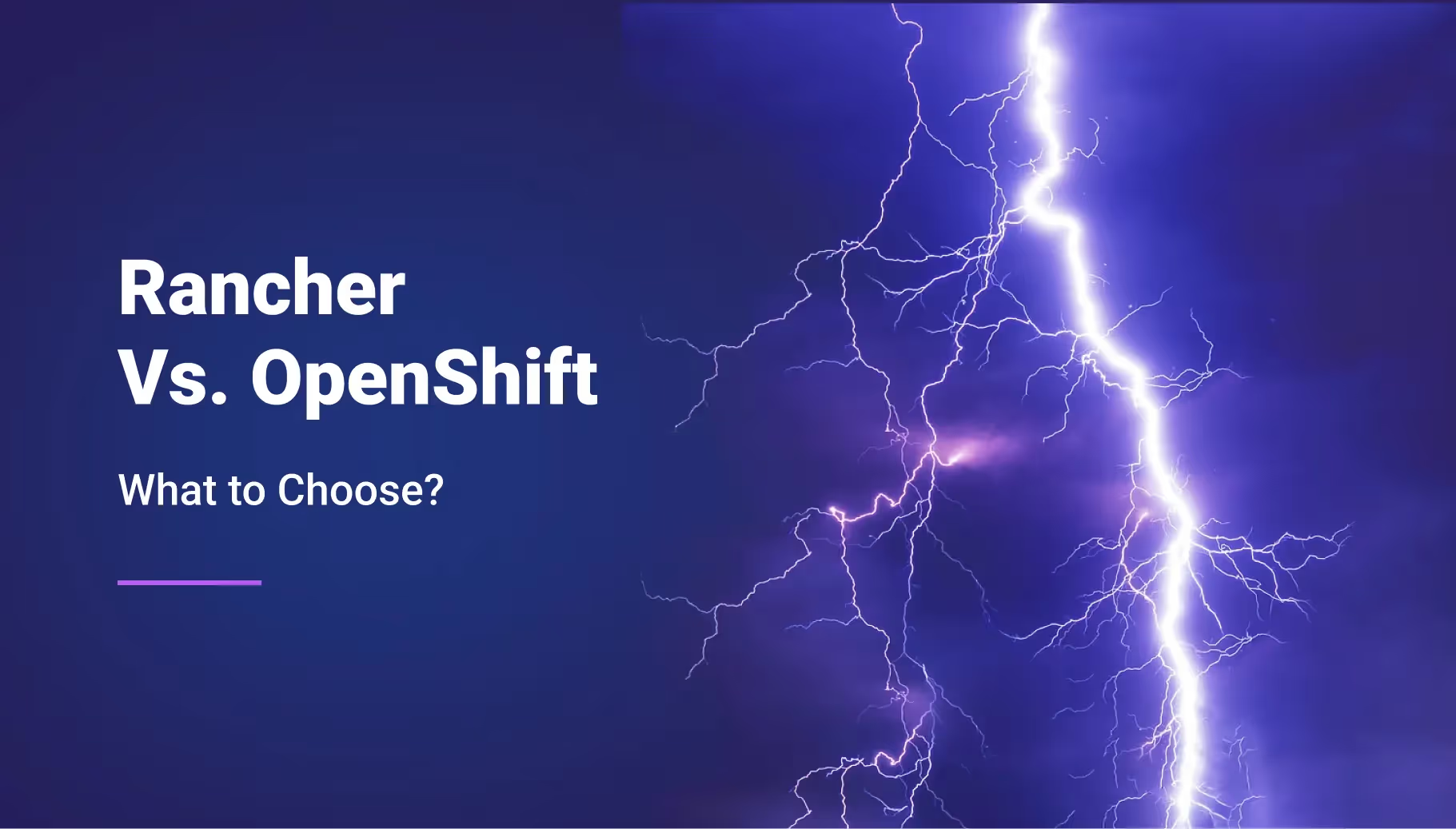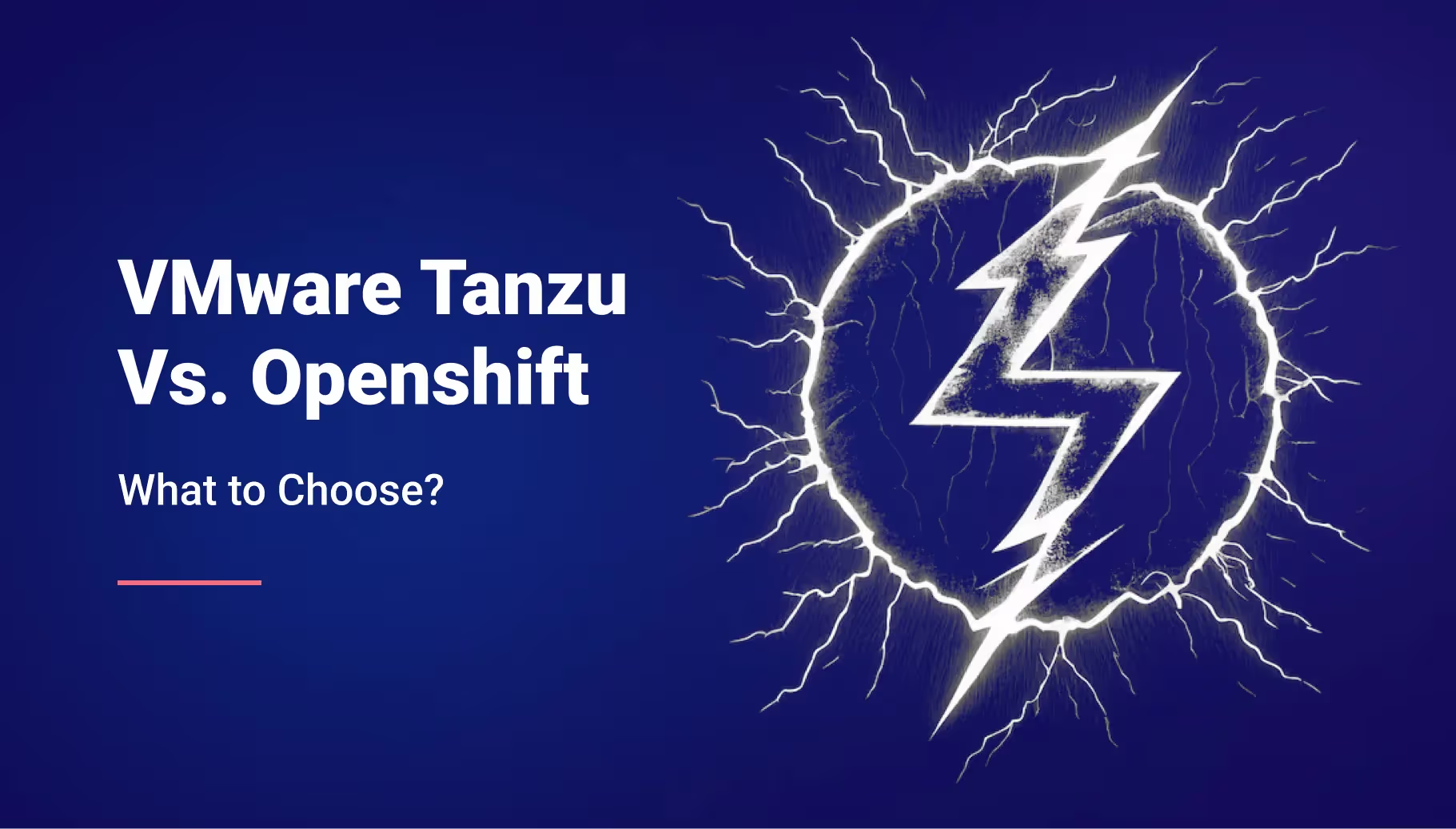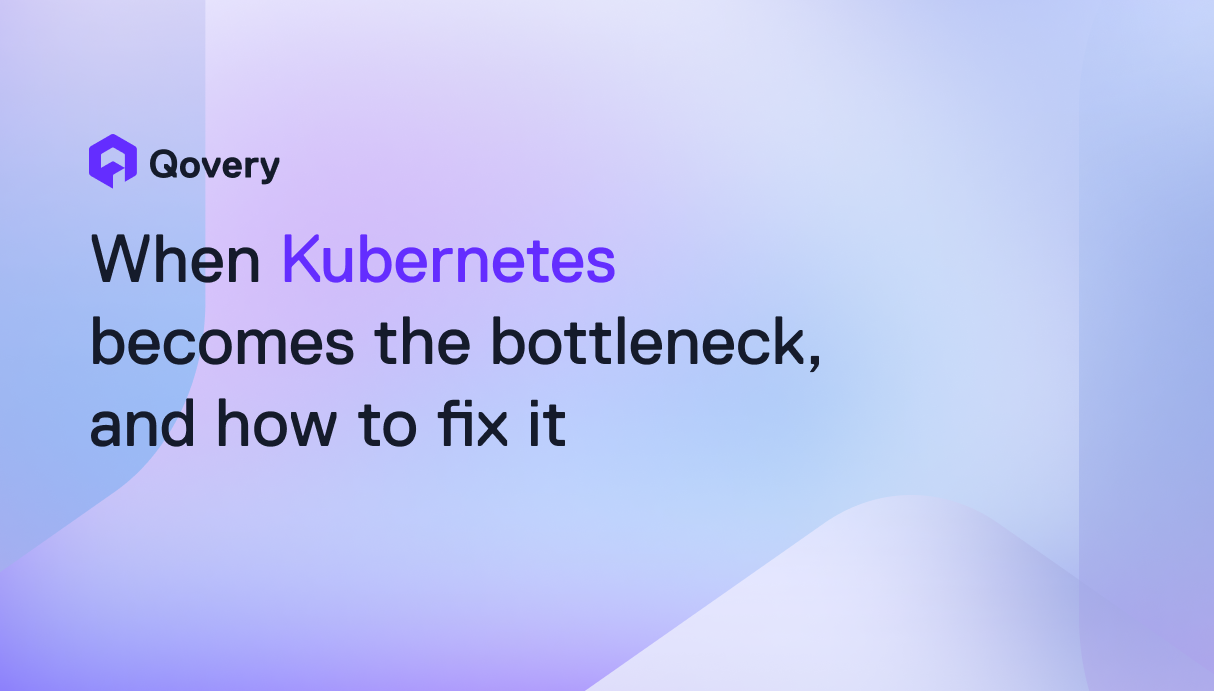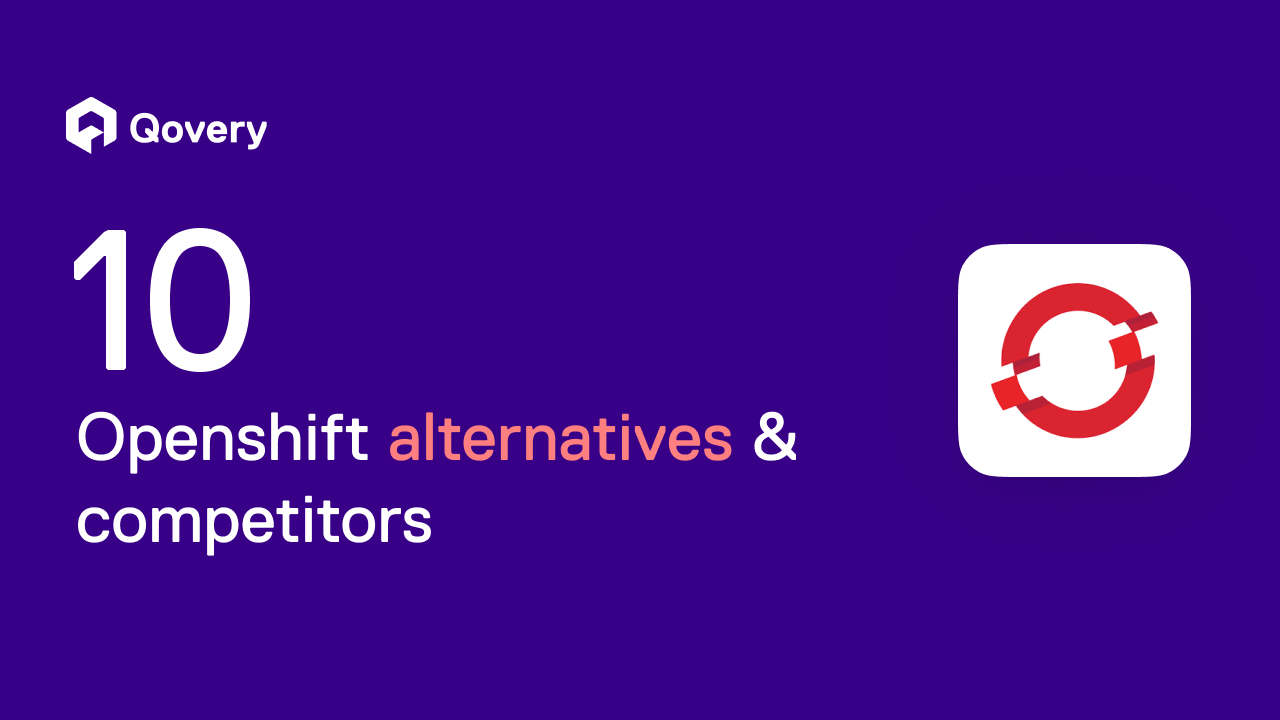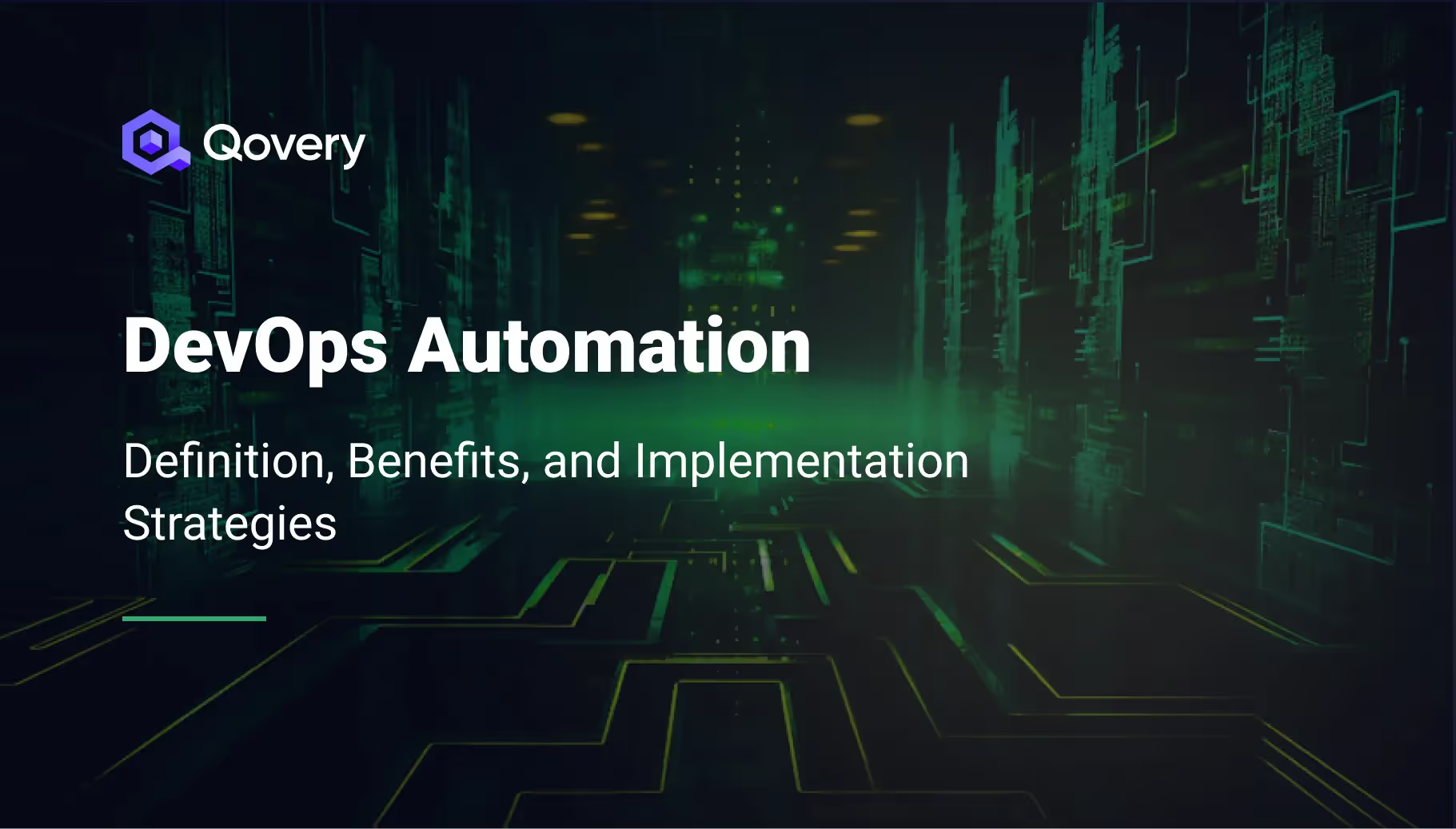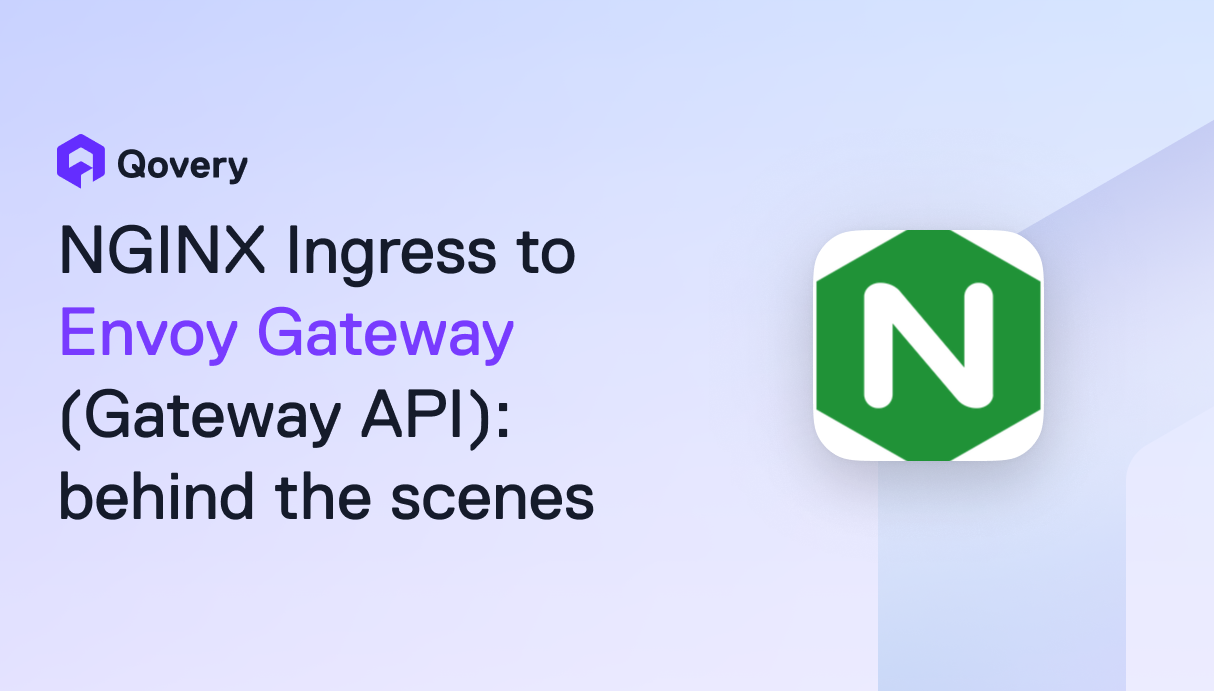


10 Best AWS ECS Alternatives: Trade Cloud Lock-In for True Multi-Cloud Flexibility

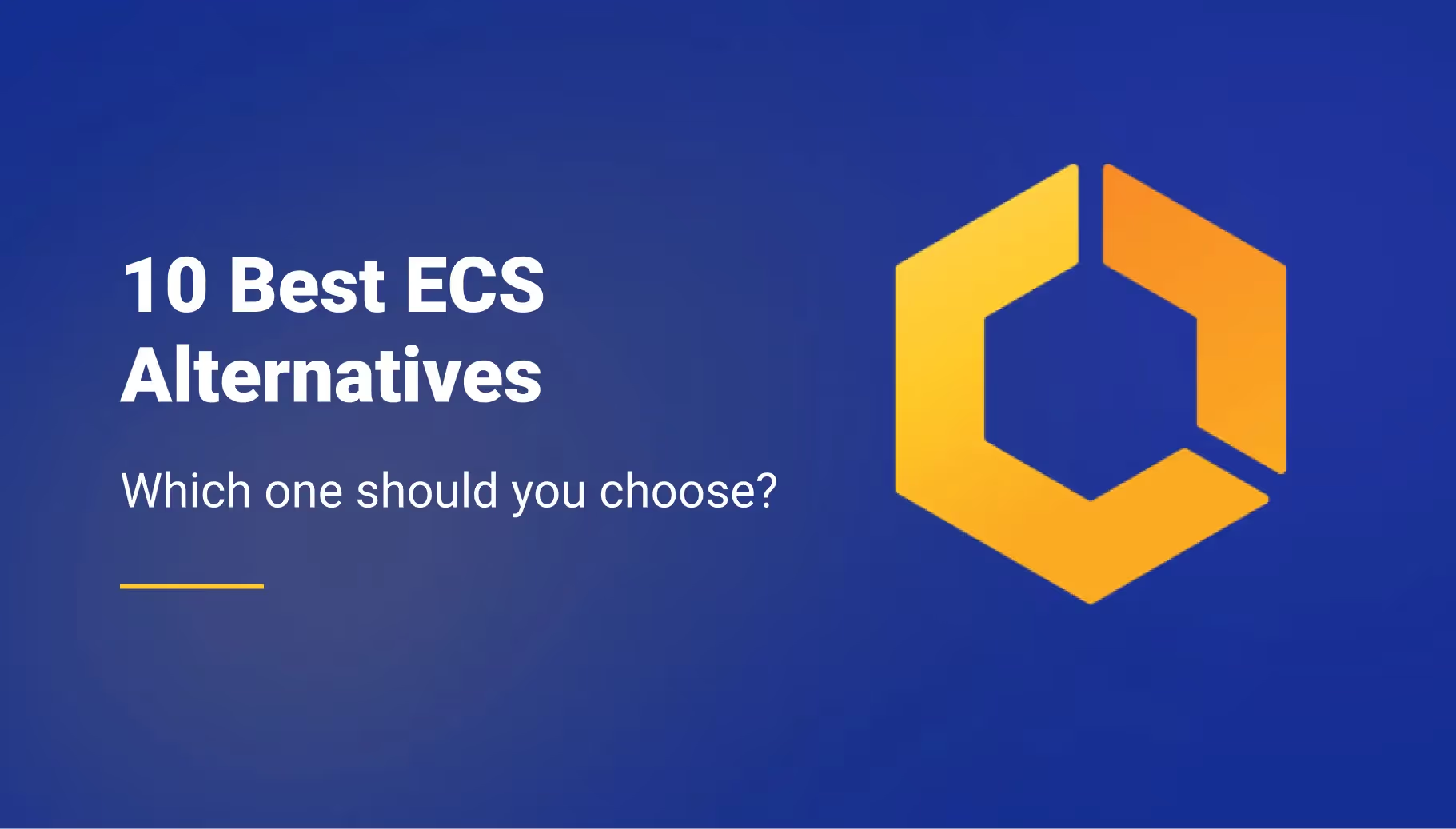

Key Points:
- The choice among AWS ECS alternatives balances the granular control of native orchestrators (EKS, GKE, AKS) against the simplicity and abstraction provided by higher-level platforms.
- Qovery differentiates itself by providing a unified, user-friendly PaaS experience that runs on top of scalable, robust infrastructure (specifically, AWS EKS), automating DevOps tasks and offering native multi-cloud support.
- Teams with limited DevOps expertise or those prioritizing speed should look to automated solutions; teams needing maximum control should stick with managed Kubernetes.
The cloud-native revolution has made AWS Elastic Container Service (ECS) a foundational choice for container deployment. It's scalable, reliable, and deeply integrated into the AWS ecosystem.
But if your team is constantly hitting deployment roadblocks, fighting configuration files, or simply lacks the massive DevOps team required for full-scale orchestration, you know one size doesn't fit all. Many modern projects require an alternative that better suits unique needs—whether that's superior simplicity, multi-cloud flexibility, or next-level developer experience.
This article dives into the top 10 AWS ECS alternatives. We’ll break down their pros, cons, and ideal use cases to help you find the platform that empowers your developers to focus on code, not infrastructure.
1. Qovery
Qovery is a Platform-as-a-Service (PaaS) solution built on top of robust infrastructure (specifically, AWS EKS) that abstracts away the complexity of Kubernetes and container orchestration. It delivers a streamlined, Git-driven workflow, allowing developers to deploy and manage applications without needing deep Kubernetes expertise.

Pros
- Ease of Use: Qovery boasts a user-friendly interface and automated workflows, making it easier to deploy and manage containers compared to the more technical configuration required by AWS ECS.
- Performance and Scalability: Behind the scenes, Qovery leverages Amazon’s Elastic Kubernetes Service (EKS) for better performance and scaling capabilities. This allows Qovery to handle varying workloads efficiently, providing a robust and scalable solution for deploying containerized applications.
- Cost-Effectiveness: Qovery offers a pay-per-use pricing model based on resource consumption, potentially leading to cost savings for applications with variable workloads compared to the fixed costs associated with managing your own cluster in ECS.
- Integrated Features: Qovery provides built-in features like environment variables, secrets management, and continuous integration/continuous delivery (CI/CD) pipelines, reducing the need for additional tools compared to setting them up manually in ECS.
Cons
- Limited Customization: Qovery might have limitations on customizing the underlying infrastructure compared to the granular control offered by ECS.
Use Cases
- Small and Medium-Sized Businesses (SMBs): Qovery's simplicity and ease of use make it ideal for SMBs with limited DevOps expertise who need a quick and efficient way to deploy containerized applications.
- Large-Scale Applications: Qovery is ideal for large-scale deployments because it leverages the power of Kubernetes, which is known for its robustness and scalability. Qovery abstracts away the complexity of Kubernetes, allowing developers to focus on writing code and delivering value to their customers. With Qovery, you can confidently deploy your applications, knowing that the platform takes care of the underlying infrastructure and provides the tools you need to manage your deployment.
- Multi-cloud Deployments: Qovery is suitable for multi-cloud platforms as it supports a variety of cloud providers including Amazon Web Services (AWS), Google Cloud Platform (GCP), Microsoft Azure, and Scaleway. This allows you to deploy your applications across multiple cloud environments, providing flexibility and preventing vendor lock-in. With Qovery, you can leverage the unique features and benefits of each cloud provider, making it an ideal choice for multi-cloud deployments.
- Microservices Architecture: Qovery can effectively manage microservices architectures due to its ability to handle independent deployments and scaling of individual services.
2. Docker
Docker is an open platform that allows you to automate the deployment, scaling, and management of applications using containerization.
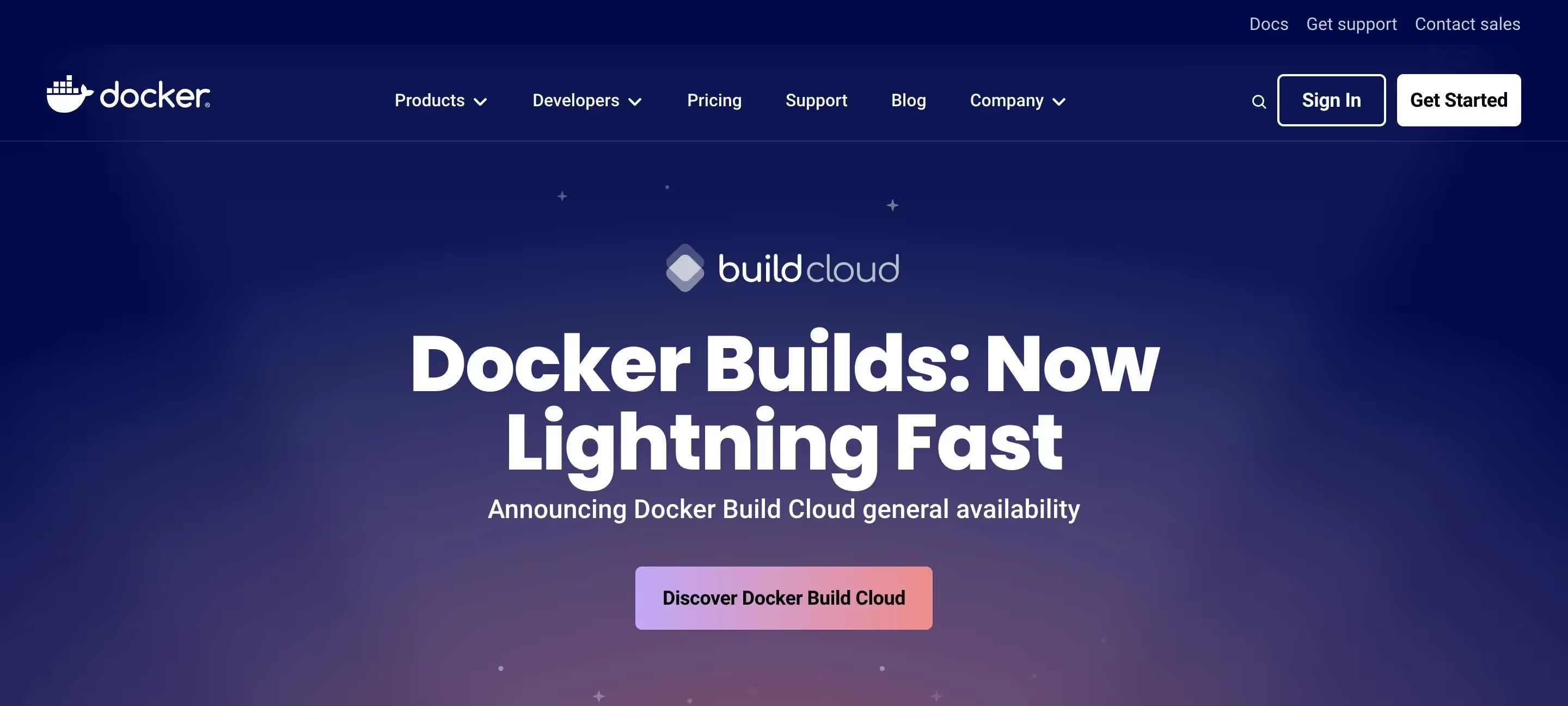
Pros
- Simplicity: Docker is known for its simplicity and speed, making it easy to containerize and manage applications.
- Portability: Docker containers can run on any system that has Docker installed, providing consistency across multiple environments.
Cons
- Scaling: While Docker is great for managing individual containers, it can be less straightforward when it comes to scaling and orchestrating multiple containers.
- Management Overhead: Docker requires dedicated talent to manage and maintain, especially when used at scale.
Use Cases
- Local Development: Docker is often used in development environments where developers can create, run, and test applications in containers to ensure they will behave the same way in production.
- CI/CD Pipelines: Docker is also commonly used in Continuous Integration/Continuous Deployment (CI/CD) pipelines.
3. AWS EKS
Amazon Elastic Kubernetes Service (EKS) is a managed service that makes it easy to run Kubernetes on AWS without needing to install, operate, and maintain your own Kubernetes control plane.
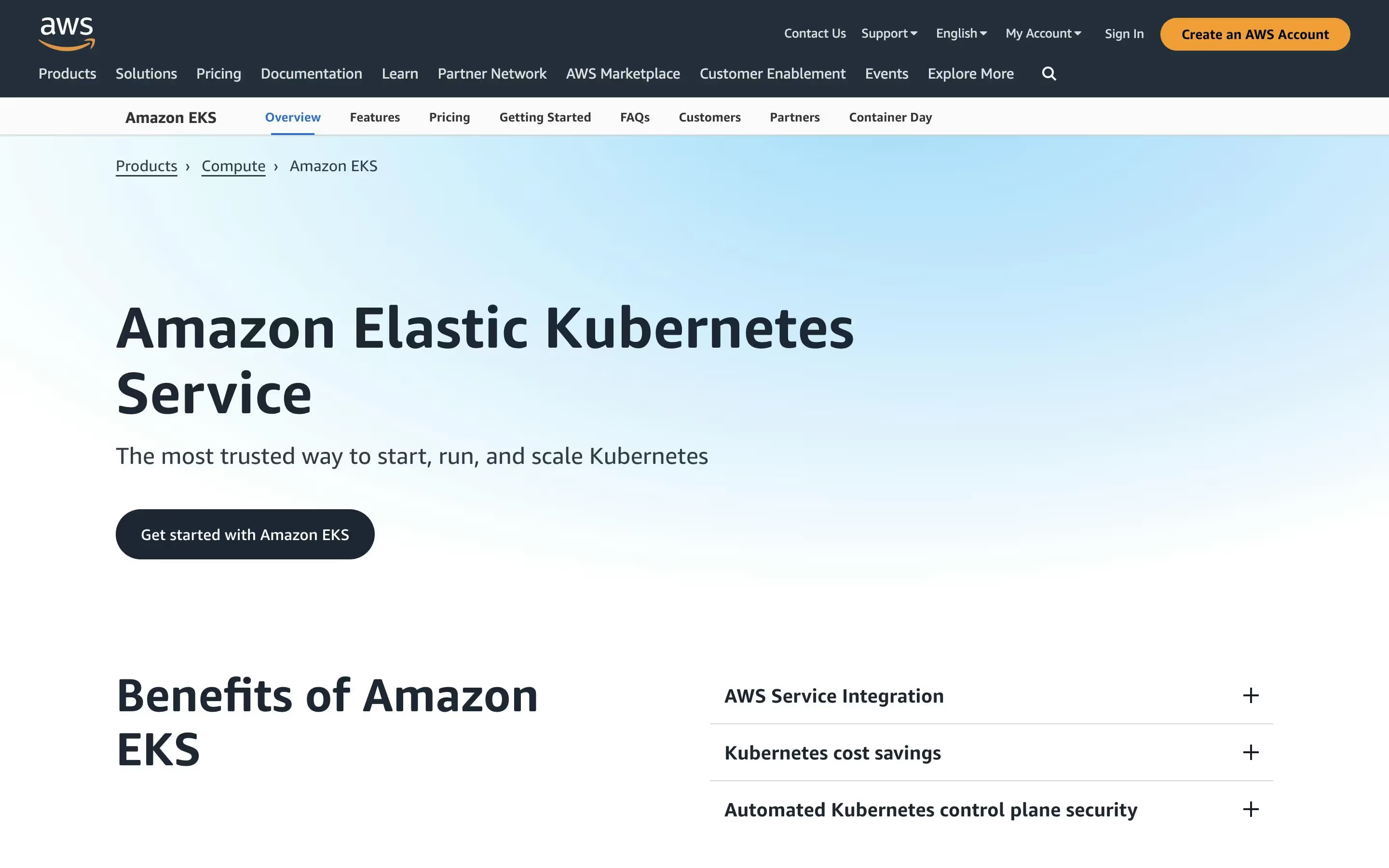
Pros
- Managed Kubernetes: EKS provides a managed Kubernetes experience, allowing you to leverage the power of Kubernetes without becoming an expert in it.
- Integration with AWS Services: EKS integrates with AWS services to provide scalability and security for your applications.
Cons
- Complexity: EKS, while also scalable, requires a more hands-on approach. You need to manually configure the autoscaling groups and use Kubernetes’ Horizontal Pod Autoscaler for your applications to scale.
- Cost: EKS can be more expensive as you scale.
Use Cases
- Large-Scale Applications: EKS is well-suited for large-scale applications that require the robustness and flexibility of Kubernetes.
- Multi-Cloud Environments: EKS is based on the open-source Kubernetes platform, which offers the flexibility to run your applications both on-premises and in the cloud.
Find the "Top 10 EKS Alternatives".
4. Cycle.io
Cycle.io is a LowOps platform designed to simplify containers, standardize infrastructure, and automate DevOps. It allows you to deploy to your own infrastructure whether it’s in the cloud, on-prem, or a mixture of both.
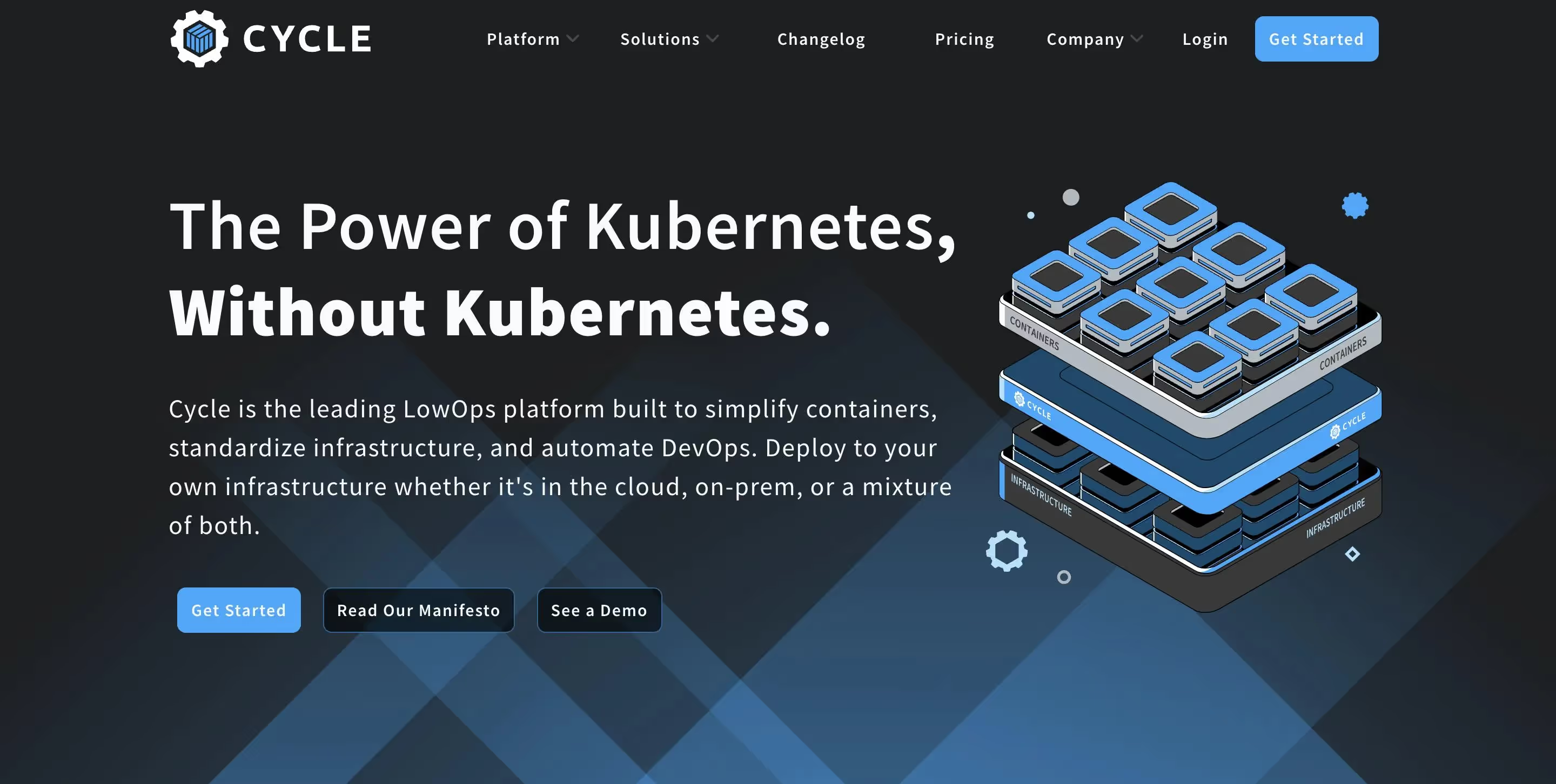
Pros
- Simplicity: Cycle.io offers a level of abstraction that simplifies the deployment process.
- Standardization: Cycle.io enforces standardization by default, reducing the complexity of managing multiple environments.
Cons
- Less Known: Cycle.io is a newer player in the market and might not have as much community support or extensive documentation as more established platforms.
- Limited Integrations: While Cycle.io does offer some integrations, it may not have as many native integrations with other services as AWS ECS.
Use Cases
- SMBs and Startups: Cycle.io is a good fit for small to medium businesses and startups that need to manage applications and underlying infrastructure without a dedicated team of DevOps experts.
- Hybrid Environments: Cycle.io allows you to deploy to your own infrastructure whether it’s in the cloud, on-prem, or a mixture of both.
5. CloudFoundry
Cloud Foundry is an open-source cloud application platform that allows you to deploy, run, and scale applications on your choice of cloud, framework, and language.
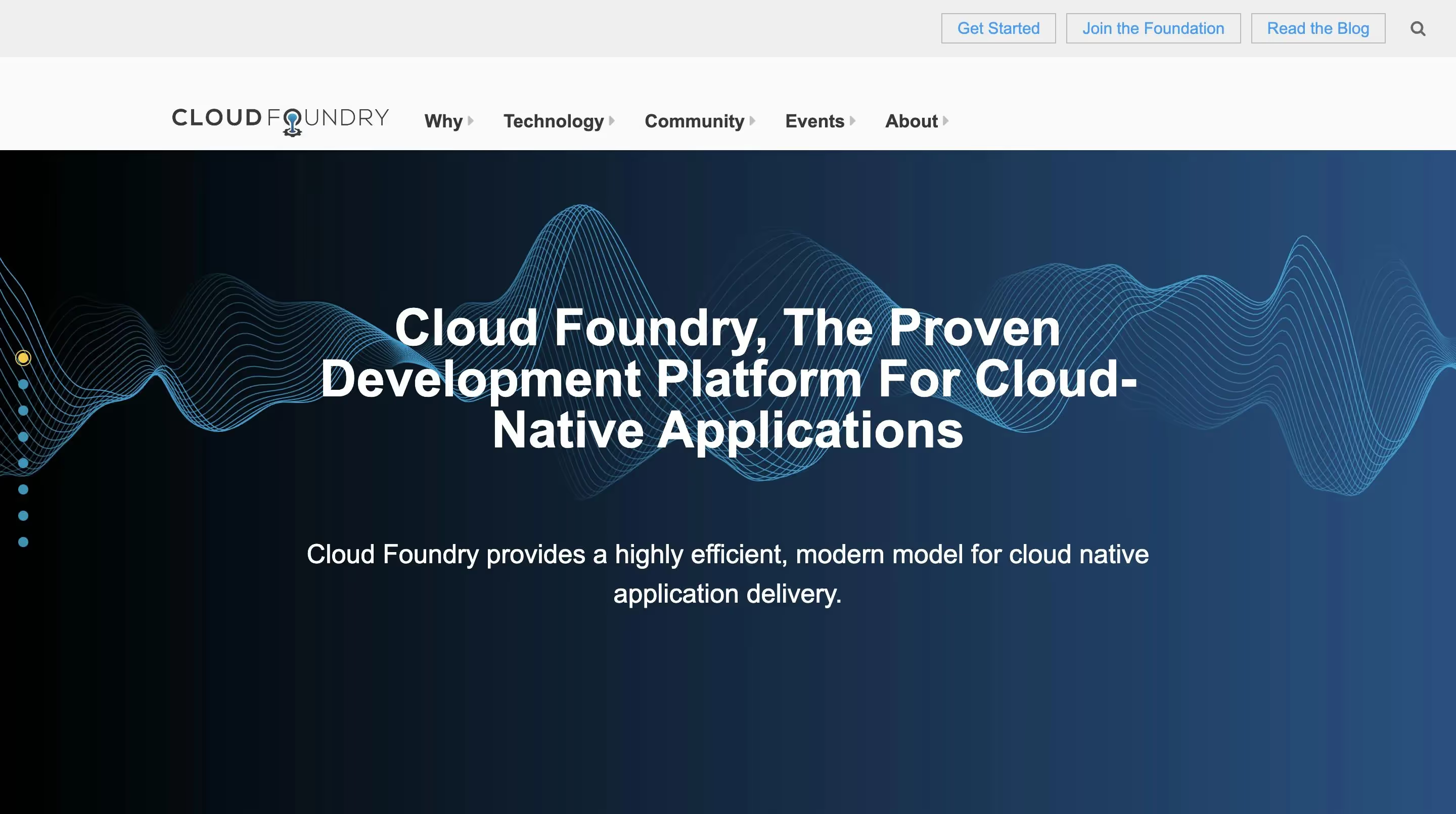
Pros
- Open Source: Cloud Foundry’s open-source nature prevents users from being locked into a single framework, set of app services, or cloud.
- Flexible Infrastructure: You can deploy Cloud Foundry to run your apps on your own computing infrastructure, or deploy on an IaaS like vSphere, AWS, Azure, GCP, or OpenStack.
Cons
- Complexity: Compared to AWS ECS, Cloud Foundry might have a steeper learning curve and could be more complex to set up and manage.
Use Cases
- Multi-cloud Deployment: Cloud Foundry is ideal for deploying applications across multiple cloud environments.
- On-Premises Deployment: It’s a good choice when companies want to deploy their applications on-premises for cost efficiency, flexibility, legal regulations, control over infrastructure, etc.
6. Rancher
Rancher is a container management platform built for organizations that deploy containers in production. It simplifies running Kubernetes everywhere, meeting IT requirements, and empowering DevOps teams.
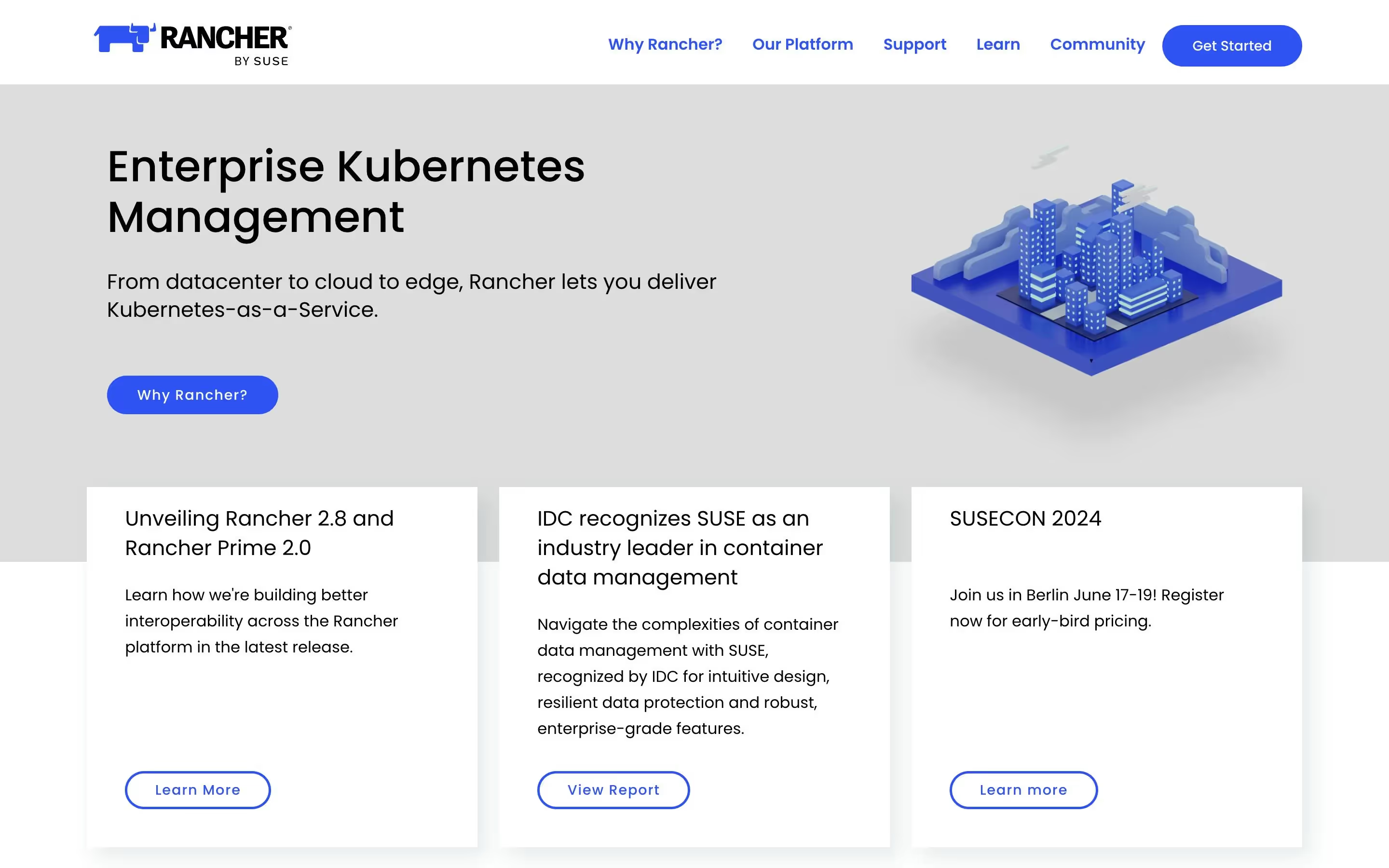
Pros
- Ease of Use: Rancher is easier to use, set up, and administer compared to AWS ECS.
- Greater Customizability: Rancher provides greater customizability and cost-effectiveness.
Cons
- Manual Installation and Maintenance: Rancher is a self-hosted platform, which means it requires manual installation and maintenance.
Use Cases
- Kubernetes Management: Rancher is ideal for managing Kubernetes clusters in a user-friendly manner.
- DevOps Empowerment: It empowers DevOps teams by providing an intuitive user interface for managing their application workload.
Find the "Top 5 Rancher Alternatives".
7. Google Cloud Run
Google Cloud Run is a fully managed compute platform that enables you to run stateless containers invocable via requests or events. It abstracts away all infrastructure management, allowing you to focus on building great applications.

Pros
- Fully Managed: Google Cloud Run is a fully managed service, which means you don’t have to worry about managing the underlying infrastructure.
- Ease of Use: Google Cloud Run is easier to use, set up, and administer compared to AWS ECS.
Cons
- Limited to Stateless Containers: Google Cloud Run is designed to run stateless containers, which might not suit all use cases.
Use Cases
- Serverless Applications: Google Cloud Run is ideal for deploying serverless applications.
- Event-Driven Applications: It’s a great solution for applications that need to respond to events or web requests.
8. Google Kubernetes Engine (GKE)
GKE is a managed implementation of the Kubernetes open-source container orchestration platform, developed by Google. It allows users to deploy and operate containerized applications at scale using Google’s infrastructure.
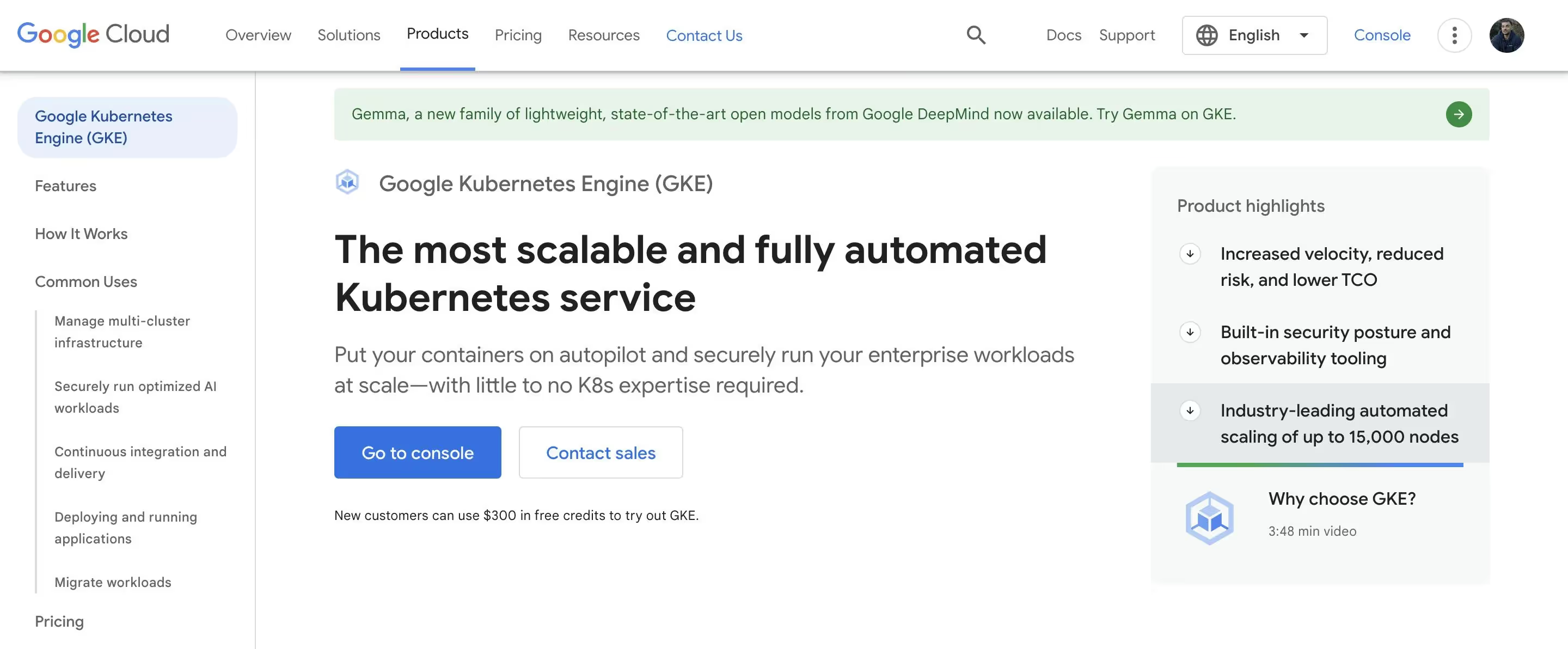
Pros
- Managed Kubernetes: GKE provides a managed environment for Kubernetes, reducing the operational overhead.
- Integration with Google Cloud: GKE is well-integrated with Google Cloud services, providing a cohesive cloud experience.
Cons
- Less AWS Integration: Compared to AWS ECS, GKE might not integrate as seamlessly with AWS services.
- Complexity: Kubernetes, and by extension GKE, can be complex to set up and manage compared to ECS.
Use Cases
- Large-scale Applications: GKE is ideal for deploying large-scale applications due to its robust Kubernetes backing.
- Multi-cloud Deployments: GKE can be a good choice for deployments that span multiple cloud providers.
9. Portainer
Portainer is a user-friendly Docker UI that helps manage and visualize containers, images, volumes, and networks.
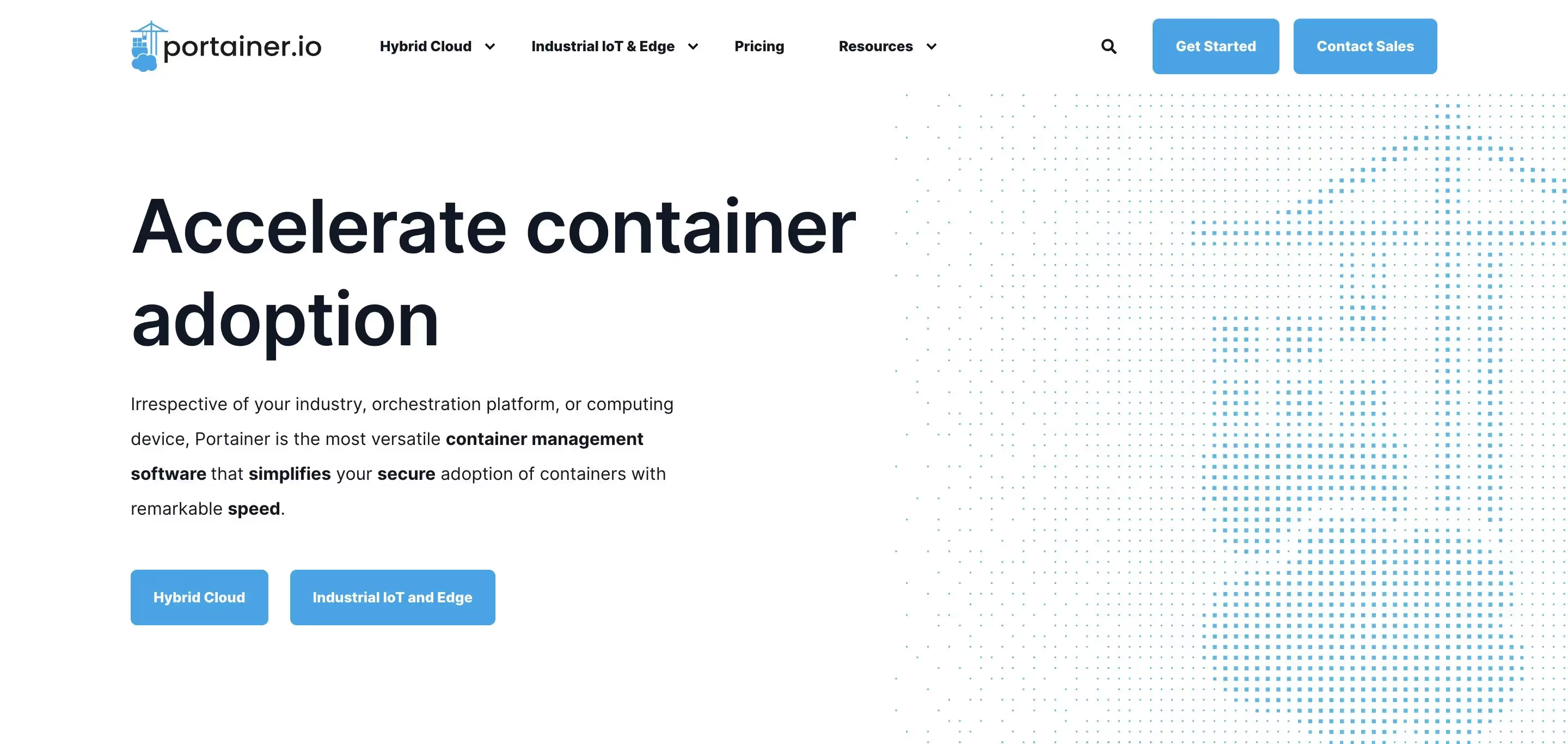
Pros
- Ease of Use: Portainer provides a simple, intuitive interface for managing Docker containers.
- Docker Focus: Portainer is specifically designed for Docker, making it a good fit for Docker-heavy workflows.
Cons
- Limited Scope: Compared to ECS, Portainer is more limited in scope, focusing primarily on Docker container management.
- Less Integrated with AWS: Portainer may not integrate as seamlessly with AWS services as ECS does.
Use Cases
- Docker Container Management: Portainer is ideal for managing Docker containers in a user-friendly way.
- Small to Medium Deployments: Portainer is well-suited to smaller deployments due to its simplicity and ease of use.
10. Azure Kubernetes Service (AKS)
AKS is a fully managed container orchestration service provided by Microsoft Azure. It simplifies the deployment of a managed Kubernetes cluster in Azure.
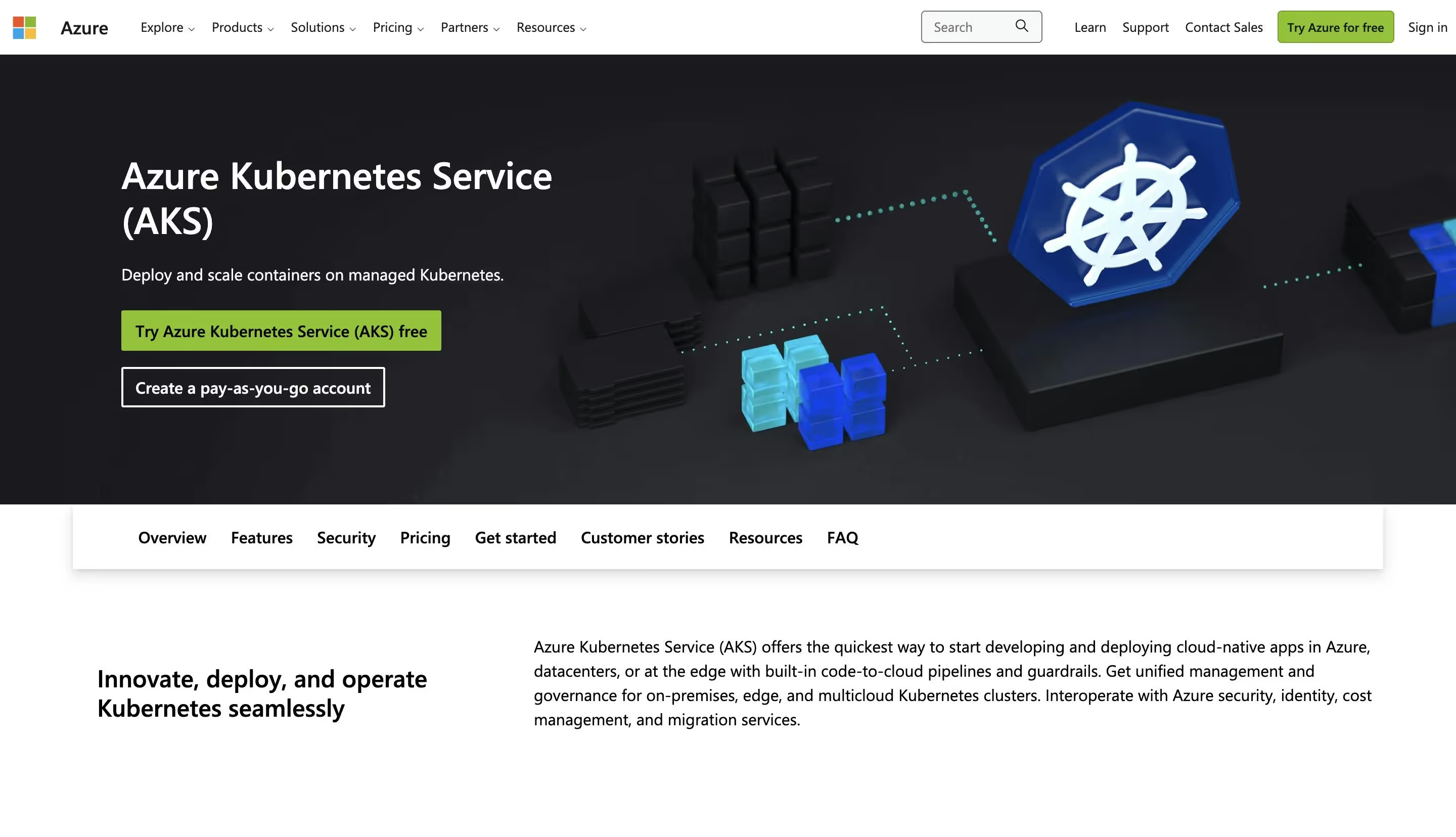
Pros
- Managed Kubernetes: Like GKE, AKS provides a managed Kubernetes environment, reducing operational overhead.
- Integration with Azure: AKS is well-integrated with other Azure services, providing a cohesive cloud experience.
Cons
- Less AWS Integration: As with GKE, AKS might not integrate as seamlessly with AWS services.
- Complexity: Kubernetes, and by extension AKS, can be complex to set up and manage compared to ECS.
Use Cases
- Large-scale Applications: AKS is ideal for deploying large-scale applications due to its robust Kubernetes backing.
- Multi-cloud Deployments: AKS can be a good choice for deployments that span multiple cloud providers.
Comparison Summary Table
Here is the comparison summary table for all the ECS alternatives.
Conclusion
The ten alternatives to AWS ECS demonstrate that the market is clearly fracturing based on different priorities: simplicity, cost, and control.
- For raw control and integration, the managed Kubernetes options (EKS, GKE, AKS) are the definitive choice.
- For serverless simplicity with no infrastructure management, Google Cloud Run is unmatched.
- For developers seeking to completely divorce themselves from operational complexity, Qovery stands out.

Suggested articles
.webp)



.svg)
.svg)
.svg)


